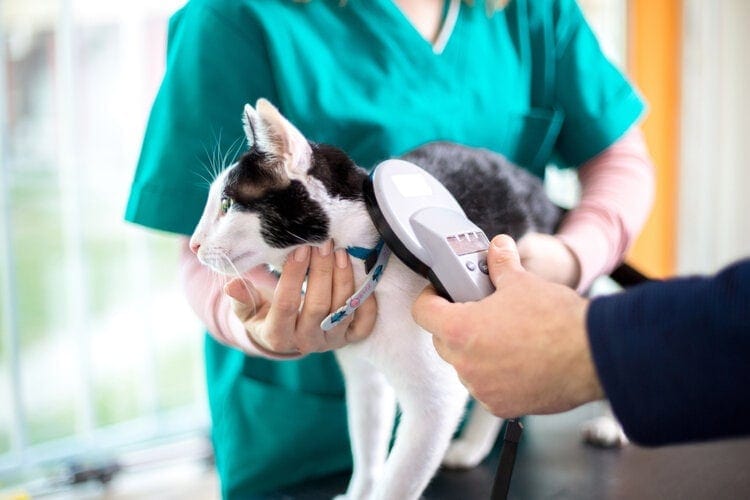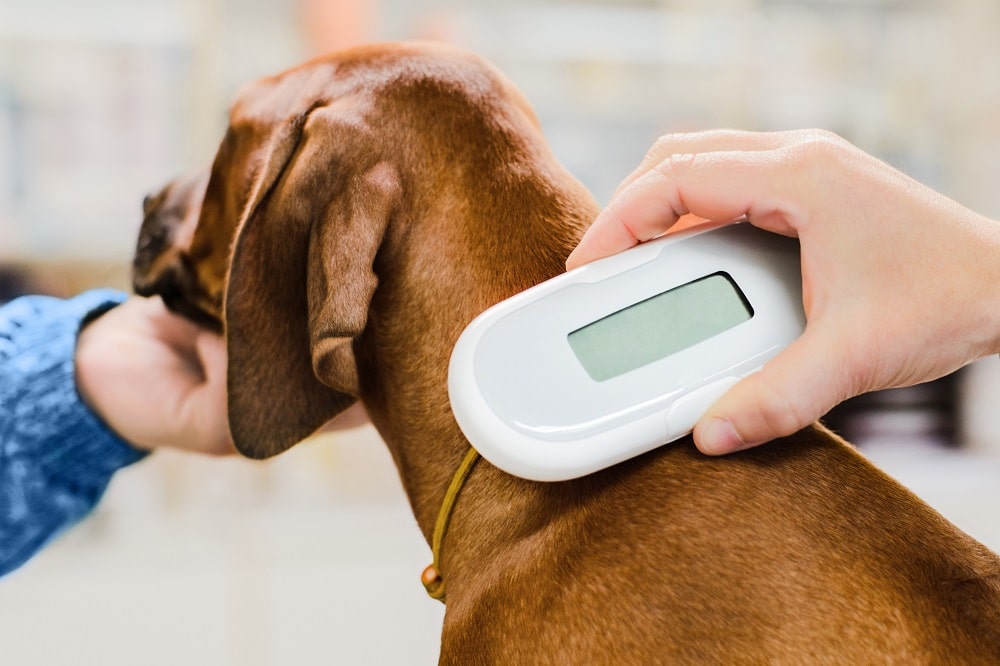
Introduction
Microchipping was introduced in the United Kingdom in the late 80s and has now become a prerequisite for pet ownership in some areas. For example, in 2016, dog microchipping became a legal requirement in England and Wales, and in 2020, it became compulsory for all Montreal cat and dog owners to microchip their pets.
Whether you’re new to pet ownership or considering microchipping your cat or dog for the first time, you might wonder about the costs of this type of procedure. The good news is that microchipping is relatively inexpensive and will be more than worth the investment if your pet ever gets lost or stolen.
Keep reading to learn everything you’ve ever wanted to know about microchipping and the costs associated with this procedure.

The Importance of Microchipping Your Cat or Dog
Microchipping is an affordable and invaluable procedure that will irrefutably prove ownership if your pet gets lost or stolen. Microchip IDs cannot be tampered with as they are inserted under the skin, and since they’re so small, it’s nearly impossible to find the chip’s exact location once it has been inserted.
Microchipping is a relatively painless procedure that doesn’t require anesthesia and only takes a few seconds to perform. In addition, you will never need to replace the chip as it has no working parts, so there are no additional costs once it has been implanted.
A 2021 poll from Outward Hound looked at the benefits of pet microchipping. Their results show that of all the lost dogs, just 22% of those without chips were reunited with their parents, while 52% with microchips were returned home. Only 2% of cats without a microchip were reunited with their owners, while 39% of those with chips came home to their parents.

How Much Does Microchipping Cost?
The costs to microchip your pet may vary depending upon your location in Canada. Each veterinary clinic will set its own price for the microchipping procedure, so you should reach out to your clinic to get an accurate estimate of cost. In addition, you may find that some vets offer discounts for spayed or neutered pets, and some will even offer microchipping as an add-on to your pet’s spay or neuter procedure.
We researched the average costs at various clinics throughout Canada to give you an idea of what the microchipping procedure will cost.
| Location | Chip & Implant Cost |
| Toronto, Ontario | $75 |
| St. John’s, Newfoundland | $30–$50 |
| Vancouver, British Columba | $28 |
| Ottawa, Ontario | $50 |
| Montreal, Quebec | $40–$100 |
| Regina, Saskatchewan | $33 |
| Winnipeg, Manitoba | $64.50 |
Sources: Beaches Animal Hospital (Toronto), Torbay Road Animal Hospital (St. John’s), Atlas Animal Hospital (Vancouver), Ottawa Humane Society (Ottawa), Clinique Veterinaire Vaudreuil (Montreal), Regina Humane Society, Centennial Animal Hospital (Winnipeg)
Many animal shelters hold microchipping clinics where they offer the procedure at a discounted rate for pet parents on a strict budget. You may want to contact your local Humane Society to inquire about upcoming clinics.
Additional Costs to Anticipate
Some microchipping registries have annual or lifetime dues. For example, in British Columbia, you may register your microchipped pet with the BC Pet Registry. The yearly registration plan is $12 per year per pet, or you can opt for lifetime registration, which costs $45 per pet and is valid for its lifetime.
Some registries offer additional services, such as 24PetWatch’s Pet Protection Services. These upgraded plans include support for your pet’s ongoing well-being and safety needs. Their $ 99.95-lifetime care plan has 24/7 access to specialists who can help you begin the process of finding your lost pet. DirectConnect to connect you with the person who’s discovered your pet so you can arrange a quick reunion and a year’s worth of 24/7 access to a vet helpline.

Does Pet Insurance Cover Microchipping?
Some pet insurance companies may offer coverage for microchipping, but it is not a benefit that’s always included. You may need to opt for additional coverage, such as a Wellness Care plan to receive coverage for this type of procedure. At the time of writing, we could not find any pet insurance companies in Canada that openly provide insurance for microchipping in their policies. However, many insurance providers offer lost and found coverage to help fund advertisements to find a lost or stolen pet.
Though you will be hard-pressed to find coverage for microchipping in any Canadian pet insurance policy, you may find that some providers will not allow you to enroll if your pet is not first microchipped.
How Often Do I Need to Get My Pet’s Microchip Replaced?
Microchips do not use batteries and have no moving parts, so there is nothing that needs to be charged or any component that can wear out. As a result, your microchip should last your pet’s lifetime.
However, you may run into issues with the chip migrating from its original location. Though migration is rare, occurring in less than 1 in every 10,000 cases, it can happen if you’re extraordinarily unlucky. In this situation, you may need to decide if inserting a second microchip makes sense for your pet.
You may be told that your pet’s microchip doesn’t work or that it is not scannable. This may be due to a vet or animal shelter using a scanner that cannot read your pet’s microchip frequency. The good news is that universal scanners have recently been introduced that can read all frequencies. However, there may be a transitionary period as shelters and clinics begin to adopt these new and universal scanners.

The Importance of Registering Your Microchip
It is not enough to have a microchip inserted into your pet; you also need to register the chip with your contact information. If you skip the crucial step, the clinic or shelter that finds your lost pet will not have your information to notify you of its whereabouts. You will need to provide your name, address, and contact numbers so that you can become reunited faster when your lost pet is found.
You must also ensure your pet’s microchip information is up to date after every move or phone number change.

Conclusion
Microchipping is an affordable way to ensure you and your pet can be reunited if they become lost or get stolen. Even if your pet spends most of its time indoors, it’s worthwhile to get it chipped as accidents happen. You never know when a slinky dog or cat will slink past you when you’re bringing in groceries or coming in the door after work. Microchips provide peace of mind and give you extra options for finding your pet if it sneaks away on you one day.
Featured Image Credit: Ivonne Wierink, Shutterstock

